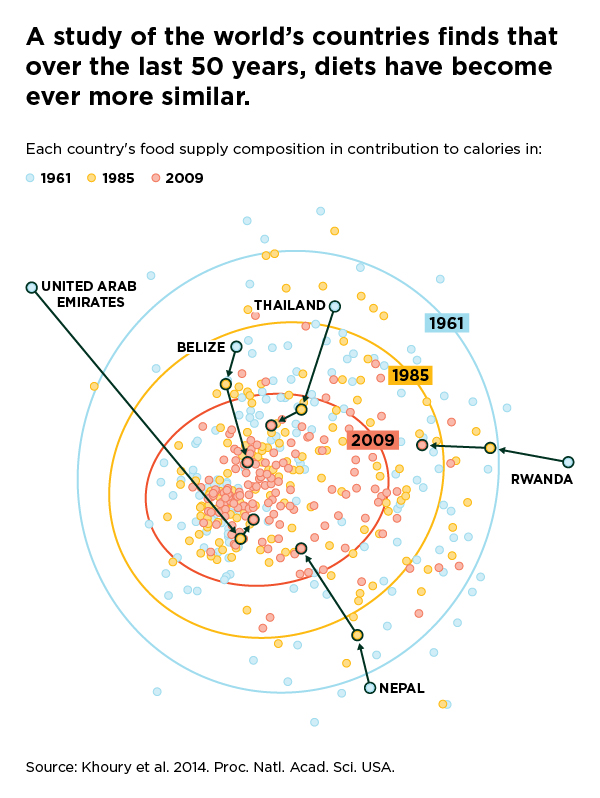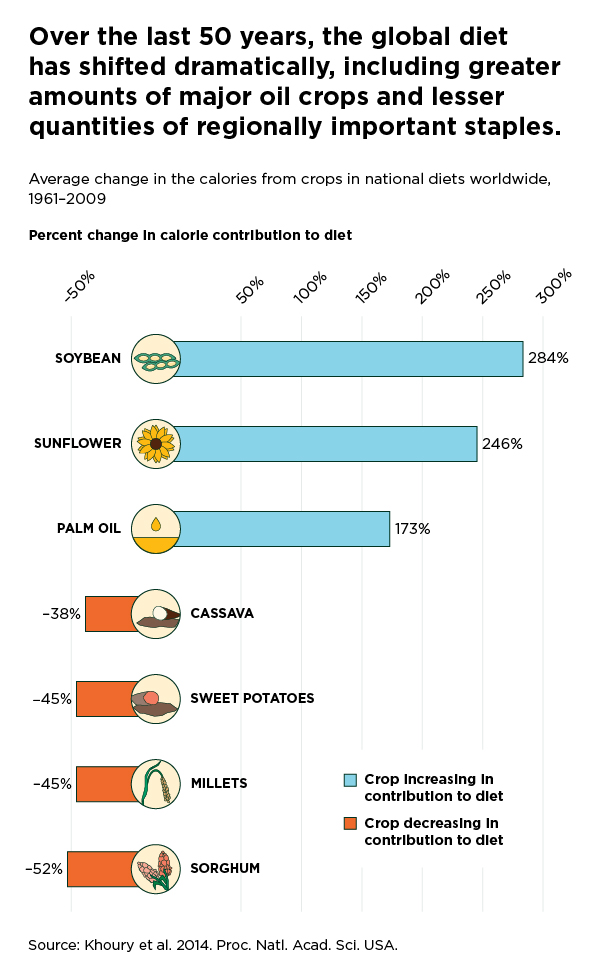You’ve probably heard that the food people eat worldwide is getting more and more homogeneous. As the Western diet spreads, we are relying on just a few staple grains and meats. This is a commonly held belief — yet it’s never been authoritatively studied.
Now it has. The results were just published in the Proceedings of the National Academy of Sciences (one of the more prestigious journals) — and it turns out that this commonly held belief is … totally right, and actually more dramatic than some expected.
See? Sometimes conventional wisdom really is wise.

We see a diversity of regional diets moving inward, drawn by the gravitational force of the dark star that is our hyper-efficient industrial food system. The homogenization has led the world to rely mostly on wheat, corn, and soy. Losing food diversity puts us at greater risk if there’s a crop failure, like the potato blight (which contributed to the Great Irish Famine).
We don’t have to wait for another famine to find reason to dislike this trend and try to reverse it. The modern diet is already a public health disaster, and the increased use of palm oil has had devastating environmental consequences. Besides, isn’t difference more interesting? Variety is the spice of life, and gives life to good food.




